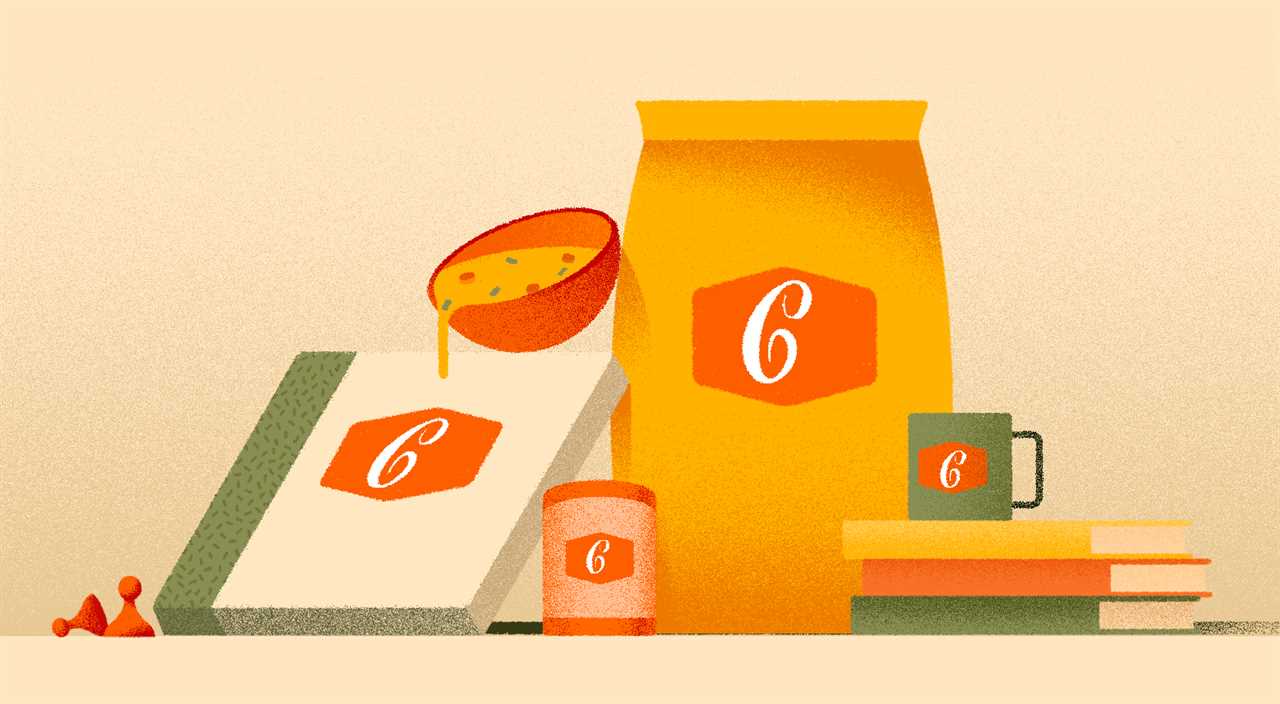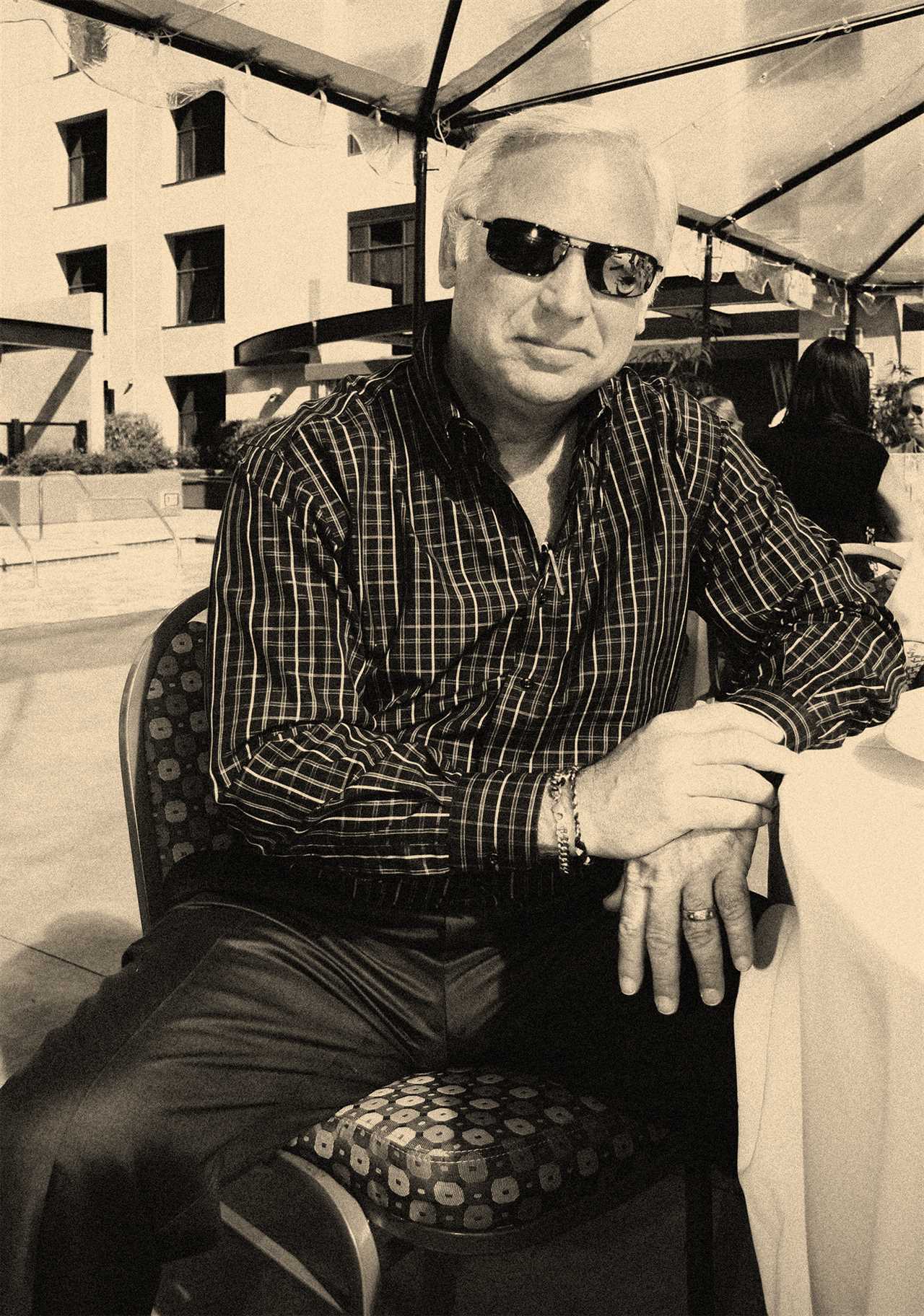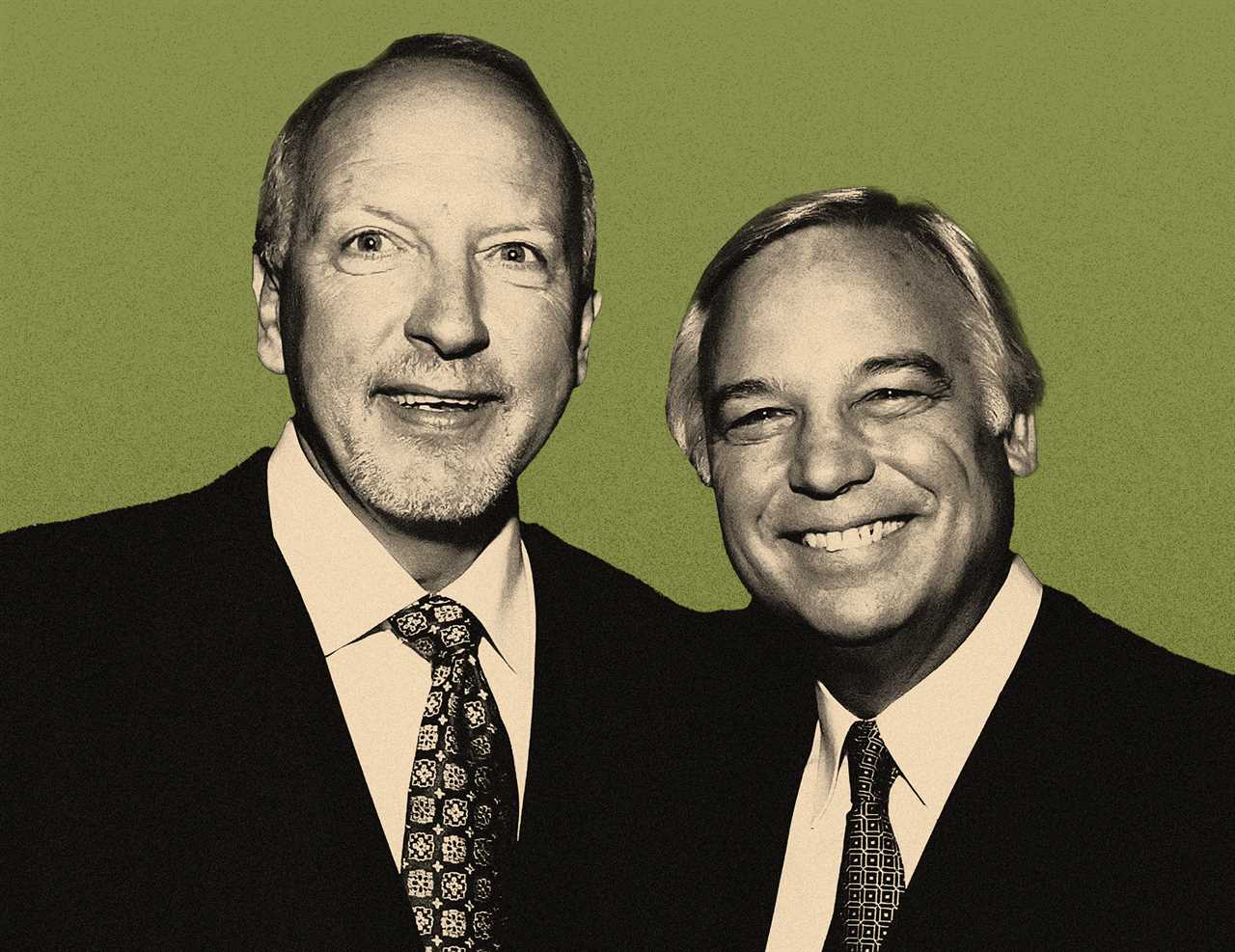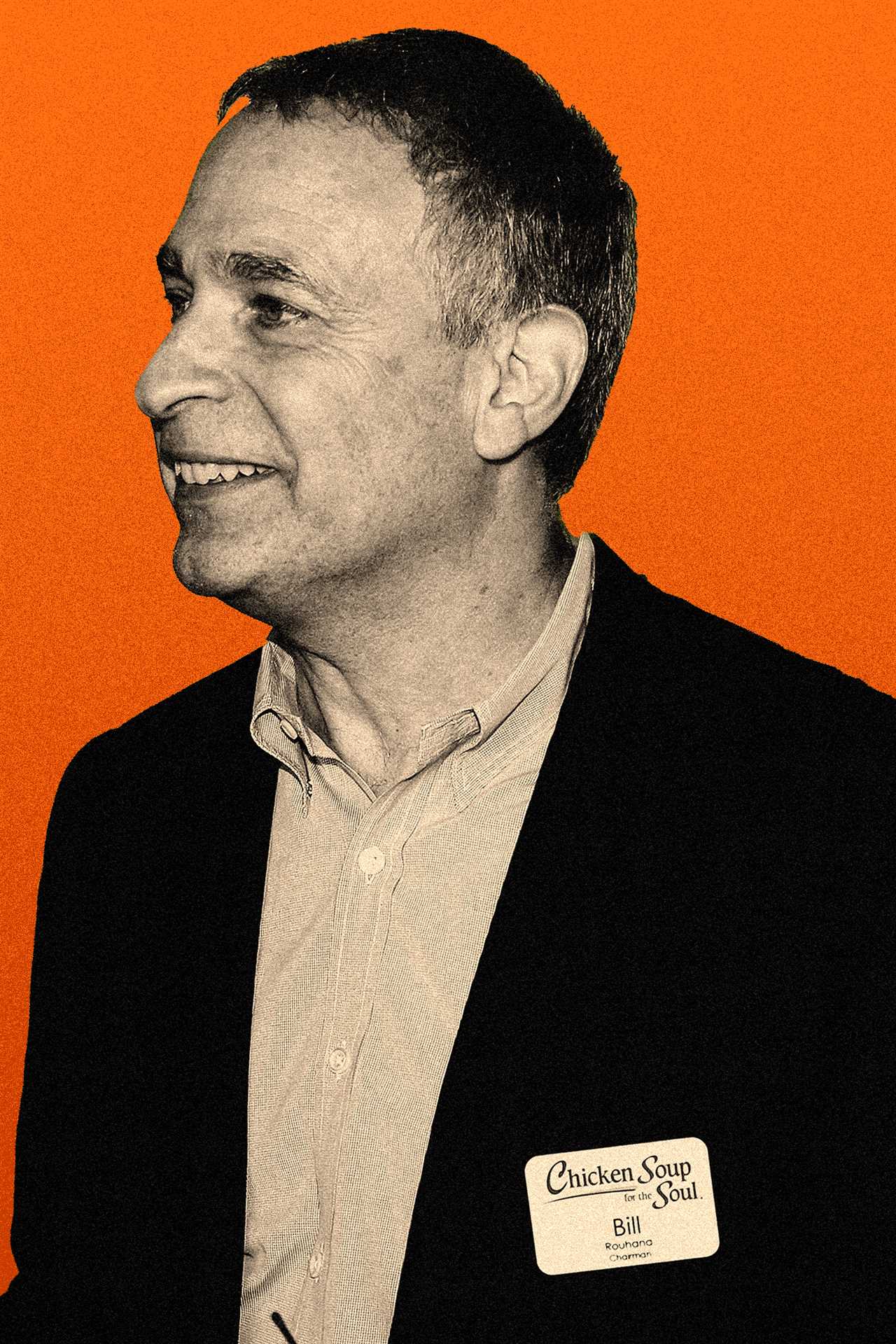Tyler Le/BI
Even after everything I'd learned about Chicken Soup for the Soul, I still ended up ugly-crying in a hotel ballroom alongside 206 other sniffling adults, my mind a mess of guilt and shame, contemplating how I and I alone was to blame for every problem I've ever had.
"Everything in your life you created, promoted, or allowed," the man on stage was saying. "Everything that happens to you is for a reason. It's a gift."
Gooey bands of mucus stained my T-shirt. Everything was all my fault, I saw now. Even the drunken driver who'd left me with a brain injury I'd spent the past five years recovering from. It must have been a Lesson From The Universe, an experience I deserved.
I'd come to the John Wayne Airport Hyatt Regency in Newport Beach, California, for a "Breakthrough to Success" weekend last fall with Jack Canfield, the spiritual teacher and mastermind behind the best-selling nonfiction book series of all time: "Chicken Soup for the Soul." Back in the early 1990s, Canfield told us, he meditated for several days to conjure a title for an anthology of short, feel-good tales he hoped would improve readers' lives by demonstrating how our thoughts create our circumstances. The original collection of 101 stories, interspersed with motivational quotes, poems, proverbs, and cartoons, would go on to sell 11 million copies and become a cultural touchstone, read by everyone from Oprah Winfrey to Tony Soprano's mistress.
What followed was hundreds of sequels and spinoffs, everything from "Chicken Soup for the Cat Lover's Soul" to "Chicken Soup for the Canadian Soul" to the bestseller I read cover to cover, several times, in sixth grade: "Chicken Soup for the Teenage Soul." By 2003, research found that more young readers seeking solace turned to the Chicken Soup series than to the Bible.
Like most self-help books, "Chicken Soup" offers the reassuring message that anyone is capable of anything — that with the right attitude, you can heal yourself, find love, and, as the translated Indonesian title promises, "Become Rich and Happy." Each book brims with advice that Russ Kamalski, Chicken Soup's former chief operating officer, told me appealed to "moms that were working and picking up their kids in the carpool line and wanted to read an inspiring story to make their life feel a little bit better."
But this emphasis on individual agency comes with a dark side. If you are the author of your own fate, you are also to blame for your own suffering — no matter how far beyond your control it may seem. Canfield calls it taking 100% responsibility. "A lot of people get cancer," he says. "But I always ask them: Did you eat an organic diet? Did you drink filtered water? You're responsible for maintaining your ignorance. You're responsible for not making enough money to be able to afford the stuff you need to be able to buy."
For millions of readers, myself included, these aspects of Canfield's ethos amounted to a subliminal message, filtered through anecdotes about overcoming obstacles and telling your children you love them. "Chicken Soup" remained remarkably popular for years, coasting along on an upbeat, family-friendly image. But then the company began to pivot, stretching and twisting a lucrative brand to the point of absurdity. What began as Chicken Soup for the Soul board games and calendars turned into Chicken Soup for the Soul chocolates and Chicken Soup for the Soul pet food. After Canfield and his cofounder sold the company in 2008, the new owners experimented with Chicken Soup for the Soul barbecue sauce and even, briefly, Chicken Soup for the Soul soups. Then they ventured even further afield, spinning off Chicken Soup for the Soul Entertainment, going public on the Nasdaq, and buying up film distributors and streaming services like Redbox and Crackle. Today, Chicken Soup for the Soul somehow owns the North American rights to classic Laurel and Hardy films and the original "Little Rascals" shorts.

Tyler Le/BI
Even to experts in corporate branding, Chicken Soup for the Soul's trajectory has been baffling. "The whole point of having a brand is that it's kind of a consistent signal of something," says Americus Reed, a marketing professor at Wharton. "This is so wildly different from what it started as. It just creates this very cognitively dissonant idea in your mind, that your mind naturally wants to solve. Like, why are they doing this? What's going on here?"
I first searched the internet for Chicken Soup for the Soul late one night, while a bit stoned. It was like checking up on a middle-school classmate I hadn't thought of in years. Imagine my surprise upon discovering that Chicken Soup is not only a publicly traded company, but one that's buying up the DVD kiosks outside convenience stores, charging $2.25 for rentals of "Shazam! Fury of the Gods." What happened to the guilty-pleasure read I'd devoured in sixth grade? I had to learn more, to understand what was going on with the company and how it might have influenced younger me. I didn't consider how Chicken Soup for the Soul might influence the current me, but maybe I should have.
At 79, Jack Canfield is a paunchy boomer with an unnervingly calm, approachable energy. At his Breakthrough to Success event, I thought I might see glimpses of the man his son describes in his memoir as "the lying, cheating, conniving, manipulative, inhuman son of a bitch who had left my mom when I was one and she was six months pregnant." Instead I was quickly ensconced in the warmth emanating from Canfield, his eight employees, and his 20 volunteer assistants — what some in attendance called "the Canfield family."
It was a family that cost $997 to join for a long weekend, or $1,497 if you wanted VIP status. At one point I heard a woman say, "She was getting the technology through her prayer work," and that about sums up the crowd: New Age and entrepreneurial. One couple came on their honeymoon; folks flew in from Nigeria, Japan, and France; some guy brought his 12-year-old, a boy I overheard telling an adult he'd just met, "Yeah, that's a great market."
Every day from 9 a.m. to 9 p.m., we gathered in the John Wayne Airport Hyatt Regency ballroom to listen to Canfield. We reflected on our careers, our health, our relationships, our finances. We set goals. We turned to strangers and said: Who are you? Who do you pretend to be? What is missing in your life? We held hands and made sustained eye contact. We went back to our rooms each night, looked into the mirror, gave ourselves a high five, and said, "I love you." We held a vision-board party. We watched a video about a guy who said he was told by doctors he'd never walk again and then, of course, walked again.

Johnny Nunez/Getty, Tyler Le/BI
Canfield learned persistence early. He grew up poor in Ohio and West Virginia, with a violent father and a religious stepfather, and went on to attend Harvard. After teaching for a year at a predominantly Black high school, he went to work for the insurance magnate W. Clement Stone, who began each day by saying: "I feel happy! I feel healthy! I feel terrific!" Stone taught Canfield about the Law of Attraction, a 19th-century jumble of mysticism, individualism, and pseudoscience. The Law of Attraction basically asserts that anything you concentrate on or wish for will become reality. Today we might call it "manifesting." As Canfield told us, "Everything you think about and feel strongly about, you're going to bring about." Every decade or so, someone repackages this idea and makes a ton of money, from Napoleon Hill's "Think and Grow Rich" (1937) to Norman Vincent Peale's "The Power of Positive Thinking" (1952) to "Chicken Soup for the Soul."
It's a seductive mindset. I've spent years ranting about how cars and roads should be safer. But once I was in Canfield's presence, his logic seemed infallible: I was the person who had capsized my life in the wake of my head injury, not the drunken driver who hit me. Over three days in the John Wayne Airport Hyatt Regency ballroom, I cried 11 times. The Law of Attraction stirs up all your insecurities, and just when you take a nosedive into feeling worthless, it scoops you up and tells you that you are in total control of what happens next.
Canfield began running seminars like the one I attended long before Chicken Soup for the Soul existed. He always longed to reach more people. The path that led him there began in 1980, when he attended a session at a holistic health conference called "How to Triple Your Income and Double Your Time Off in Two Years or Less." It was run by someone just as obsessed with the Law of Attraction as Canfield was, a guy named Mark Victor Hansen.
Hansen is like a terrifyingly peppy windup toy, the kind of indefatigable salesman you might end up buying something from just to make him go away. "He would come in like a cyclone," recalls Kamalski, Chicken Soup's former chief operating officer, while Canfield would remain even-keeled: "They're yin and yang." Canfield is more "analytical," Hansen more "creative." Canfield is suspicious of organized religion, preferring occult traditions like Kabbalah, while Hansen practices a nondenominational, prosperity-gospel-adjacent Christianity. Despite their temperamental differences, the two men became good friends and began having lunch every Tuesday at the Beverly Hills Hotel.
When we speak on the phone, Hansen bombards me with factoids and anecdotes, most of which — like the woman who helped 12 million children "get out of abuse" — seem exaggerated at best. Now 76, Hansen describes himself as a "visionary" who has "studied everything" and is working with "all the top AI guys in the world." At one point he mentions a recent interaction with "the king of Mali" and says, "Remember, there are no bookstores in Mali." (There is not currently a monarchy in Mali, and the country has plenty of bookstores.)

Bennett Raglin/Getty, Tyler Le/BI
Canfield tells me he considers Hansen's hyperbole the product of a bad memory and too much enthusiasm: "Detail was not his strength, let's put it that way." When I mention Canfield's assessment to Hansen, he compares himself to Mark Twain. "I'm a provocateur," he says. "Some people go, 'He's full of crap.'"
After years on the motivational-speaking circuit, Canfield decided he wanted to compile the most-affecting stories he'd heard into a book, without saying directly what you were supposed to learn from them. "For me, when a story has a lesson and you don't beat people over the head with it, they remember it," he says. Hansen loved the idea. They asked many of the motivational speakers they knew to contribute their best story, and in 1991 they set off for New York to make their fortune.
The tale that Hansen and Canfield tell about their success follows the same structure as a "Chicken Soup for the Soul" story. Two outsiders have a brilliant idea (heart-warming stories that illustrate the Law of Attraction). All the so-called experts (the publishing companies in New York) look down on them. They're rejected over and over (33 times, if you asked in 1998; "nearly 100" times, if you asked in 2014; 144 times, if you ask today). And yet, through tremendous will and perseverance, they somehow manage to bring their little book to the public, not only reaping acclaim and huge financial rewards but validating their unshakable belief in themselves.
Another way of telling the story is that Canfield and Hansen went booth to booth at a publishing convention in Anaheim until they found a Florida-based press they paid to print the first 20,000 copies of "Chicken Soup for the Soul" at $6 a copy. Then they turned around and sold the shit out of those copies, using all the sales techniques they'd learned as motivational speakers: requiring each audience member to buy multiple copies, say, or selling copies at bakeries and mortuaries. In 1994, a little over a year after the book came out, it became a bestseller.
Subsequent installments practically wrote themselves. Thousands of readers mailed in their own inspirational stories, hoping to be included in "A 2nd Helping of Chicken Soup for the Soul," then "A 3rd Serving," "A 4th Course," "A 5th Portion," and "A 6th Bowl." "We had a user-generated machine before user-generated content was really in existence," Kamalski says. Reader panels evaluated the stories, selecting 101 per book, and then Hansen and Canfield would read and arrange them. Soon they were putting out four books a month, with each "Chicken Soup for the ___ Soul" title zeroing in on an aspect of their target demographic: Girl's, Preteen's, Teenage, Sister's, Woman's, Christian Woman's, Working Woman's, African American Woman's, Girlfriend's, Bride's, Expectant Mother's, Mother's, Mother & Daughter, Mother and Son, New Mom's, Every Mom's, Nurse's, Teacher's, Military Wife's, Caregiver's, Breast Cancer Survivor's, Grandma's.
"Even the books that were for men — Golfer's Soul, Fisherman's Soul," Kamalski told me, were being bought by women, as "gifts for men."
The literary establishment responded with disdain. Wayne Booth, a literature professor at the University of Chicago, wrote that he felt "arrogantly envious of the fame and mildly contemptuous of the work." Booth was disturbed to see "Chicken Soup for the Soul" implying that a single person's feelings could bring about world peace; the series also emphasized, per the Law of Attraction, that systemic forces do not disadvantage certain lives more than others. The first story in the original book recounts how a teacher in "the Baltimore slums" loved her students so much that 176 of 180 went on to achieve "more than ordinary success as lawyers, doctors, and businessmen." Was this even true? Hard to say. After settling a plagiarism lawsuit over an essay in a 1997 book for what Canfield describes as "some minor amount of money," he and Hansen began asking contributors to sign a pledge affirming that the stories they had submitted were true. They did no further checking.
After some 315 million copies circulated in China, "chicken soup" became Chinese slang for uplifting stories with no substance.
In her book "Smile or Die," Barbara Ehrenreich argues that the "mandatory optimism" pushed by "Chicken Soup for the Soul" actually makes people feel more lonely, miserable, and apathetic. Research suggests that daydreaming about success is less likely to lead to action and that increased self-esteem typically leads only to "enhanced initiative and pleasant feelings," not to better grades or happier relationships. David Gray, a historian at Oklahoma State, told me he sees "Chicken Soup for the Soul" as part of a rise in motivational rhetoric and "neoliberal mysticism" that dovetailed with a decline in job security, medical benefits, and wages for American workers. It's not hard to see how the Chicken Soup mindset benefits employers. According to Canfield's philosophy, anything you don't get in your career is your own failure to manifest what you want — not the product of larger economic forces outside your control.
Still, the money kept coming in, and Canfield and Hansen kept hustling new products, the most successful of which was Chicken Soup for the Soul pet food, capitalizing on the deluge of "Chicken Soup" stories about various furry friends. The company also secured a record-setting book-licensing deal to export "Chicken Soup" to China. But the books were not as well received in the new market. After what Canfield said was some 315 million copies circulated in China, including many in schools, "chicken soup" became Chinese slang for uplifting stories with no substance, or advice that makes you feel better but doesn't solve your problems.
Then, in 2005, Canfield allowed an Australian film crew to attend a conference he'd organized for motivational speakers. The footage was featured in "The Secret," a documentary that jump-started a global phenomenon, once again selling audiences on the Law of Attraction and the promise of wealth. A book version of "The Secret" went on to sell more copies than the original "Chicken Soup" — and sparked far more controversy. On "Saturday Night Live," Amy Poehler portrayed the book's author as callously telling Kenan Thompson's character, a refugee fleeing the Darfur genocide, "I know this is hard for you to hear, but your outlook is what's hurting you."
"Chicken Soup" evaded this kind of criticism — a crucial advantage once Canfield and Hansen decided to sell the business, in 2007. "It's hard to let go of something that's producing a lot of money," Canfield says, but "I woke up one morning and it wasn't doing it for me anymore." Hansen, who was going through an expensive divorce, says God told him to sell. Canfield says they wound up getting $63 million for Chicken Soup for the Soul. "He sold his baby," says Patty Aubery, Canfield's business partner. "And he got a good ransom."
The best part of being in the John Wayne Airport Hyatt Regency ballroom was the hugs. Every day we did dozens and dozens of full-body hugs, based on detailed instructions from Canfield: press inward from shoulders to hips, left ear to left ear, heart against heart, no back-patting, no picking up and twirling. Some hugs were long and fragrant, some were short and distant, but the cumulative effect of embrace after embrace felt amazing, like a sober Burning Man. We were safe in Canfield's glow, safe to reveal our deepest hopes and vulnerabilities and expect to be met with love and understanding.
This compassion was intoxicating. Anything felt possible. We learned about his past students who doubled their income in two years, who quadrupled their income, who became billionaires, who went from being homeless to being worth $3 million and owning three Rolexes. "It's not about money. It's about finding your life's purpose," he told us. "I'm not saying you have to 10x your income," he said — though that's what he did, in his own life. The more I heard him and his volunteer assistants use the phrase "double your income," the more I began to think I'd be so much happier if I could just ... double my income.
I felt so supported and electrified by my new community that I was vehemently taken aback when I encountered someone hostile, someone who listened with obvious boredom as I talked about my brain injury, then changed the subject to ask, "What do you think about feminism?" I decided I hated this person for puncturing the beautiful bubble we had created, and I'd hate him for the rest of my life.
Except! Then Canfield explained that resentment causes cancer. Something about the alkaline state of the body and raising your vibration and — well, things were getting a little weird now, but I really didn't want cancer! So I tried to forgive this man, even as he stood up two days in a row to thank Canfield for blurbing his book and to say, by the way, had we heard about his book? But then we were chanting at our fingers "Grow longer!" and marveling when they seemingly did, and then we were visualizing ourselves on a magic carpet going up a mountain to a temple where we met a guardian angel, and then we were all hugging again, and then we were listening to two hours of testimonials from the volunteer assistants about why we should sign up for the next level of training, which cost $14,997, or for two smaller retreats and monthly Zoom workshops, which cost $24,997.

Tyler Le/BI
"Don't let any of that negative internal self-talk stop you," Canfield told us. "Most of us are living in a cell we created, and the key is right there." These prices were a special deal, we learned, and would rise as soon as the weekend ended.
At lunch on the last day, I ran into a stylish woman in the hotel lobby. She asked if I was signing up for more training.
"No," I told her. "I can't afford it."
"Oh yeah, me neither," she said, though I could tell she was thinking about it. Signing up for more training would put her into debt. "I've got two cents," she said, "and I'm spending five." But the weekend had filled her with a sense of belonging and friendship, and she wanted to keep that feeling going.
We went in after lunch and saw that everyone who had signed up for the advanced programs was on stage taking a photo: 20 people committing to $14,997 and another 21 committing to $24,997. The stylish woman was not among them, but I noticed a kind middle-aged man I'd spoken to at length during an earlier activity. I knew this man was already in significant credit-card debt and didn't have an income. I looked up at him standing on stage, smiling, arms around his new family, and I felt very, very sad.
Canfield and Hansen sold Chicken Soup for the Soul to Bill Rouhana and Amy Newmark, a married couple. The new owners shifted the company both physically and ideologically, from Southern California to Greenwich, Connecticut — from kooky self-realization to shiny financial maneuvering.
Rouhana and Newmark met in the 1990s. At the time, Newmark was managing a hedge fund that invested in a telecommunications company Rouhana had started called Winstar. Winstar raised billions of dollars on the stock market before going bankrupt in 2001. The man who bought it out of bankruptcy later called the purchase one of the worst business mistakes he'd ever made, and told the Washington Post that Winstar had continued to charge customers after they canceled their service, apparently to convince Wall Street investors the company was growing faster than it really was. Rouhana and Winstar's leadership later settled a class-action lawsuit and a related case for $25 million that alleged they had "engaged in covert practices designed to benefit themselves at the expense of the Company and its investors" and "routinely encouraged or tacitly allowed sales personnel to engage in overt sales falsification, in a deliberate effort to overstate sales."
The new owners shifted Chicken Soup both physically and ideologically, from Southern California to Connecticut — from kooky self-realization to shiny financial maneuvering.
With Chicken Soup, Rouhana saw an opportunity. "Chicken Soup for the Soul is just thought of as a positive brand," he later explained. "Of all the things I've seen, it probably had the most positive reaction from people, and no negative reaction." Over the years the company had partnered with major brands, like "American Idol" and NASCAR, and branched out into a wide range of licensed products. Rouhana was particularly struck by the popularity of Chicken Soup for the Soul pet food. "Pet food, books — there is a lot of room between those two things that you could fill in with branding that might be successful," he said. (Rouhana declined to be interviewed for this story.)
The company continued to compile new books, churning out another 200 titles. But with the publishing industry in decline, Rouhana turned his attention to producing uplifting content for Hollywood. Working out of the company's headquarters, which he moved to a suburban office above a CVS, he finagled a partnership with Ashton Kutcher. But over several years, through 2016, he wound up releasing only two shows; one, called "Hidden Heroes," secretly taped people performing acts of kindness, like a wholesome version of Kutcher's notorious prank show "Punk'd."

Isaac Brekken/Getty, Tyler Le/BI
Then Rouhana hit on a way to bring Chicken Soup to the next level. He took advantage of a new securities provision called Regulation A+ that allowed small companies to bypass the stringent reviews associated with an initial public offering and sell shares to pretty much anyone. The goal was to enable average folks to share in the early-stage profits typically reserved for large banks and the wealthy. But the Consumer Federation of America later called Regulation A+ "an experimental online marketplace" that brought together "inexperienced issuers with unsophisticated investors" who harnessed "the power of the Internet to hype stocks." Other companies that went public under Regulation A+ involved UFOs and flying cars.
To a certain extent, selling stock felt like the same old Chicken Soup for the Soul promise: Buy these shares that might help you become rich because this reminds you of this brand that made you feel like you could become rich. With Kutcher's name attached, Chicken Soup for the Soul Entertainment raised $30 million in 2017, in what was described as the biggest crowdsourced IPO of all time. Shares of CSSE opened at $9.25.
With the cash infusion, Rouhana took the company in a new direction. As Hindenburg Research, a forensic financial analysis firm, explained: "Rouhana has voting control over the public company and similarly has control over the ultimate parent, thereby giving him virtually unmitigated control of the entire corporate structure." He began buying up free, ad-supported streaming services, envisioning a future when customers would grow tired of paying for so many subscriptions and go back to watching TV with commercials. His biggest move came in 2019, when he initiated a two-part deal to buy Crackle from Sony Pictures Television. When the deal was complete, shares of CSSE spiked to $42.39.
Rouhana took advantage of the moment. The company sold $75 million worth of stock, causing the share price to tumble. That same month, according to Zillow and Connecticut public filings, Rouhana spent $3.4 million on a lakefront home, which had 10 bathrooms, a wine cellar, a fountain, a free form pool, and a spa with a footbridge to a "private island."
All these years later, Chicken Soup for the Soul still had the power to make its owners lots of money. Then someone crashed the party.
In May 2022, a Canadian day trader named Kevin saw a post on social media about how Chicken Soup was about to acquire Redbox, the DVD-rental-kiosk company. Reddit reacted with incredulity. "Huh," one person wrote. "Apparently both of these companies still exist." Kevin, however, saw a perfect opportunity for people to get together and screw over some Wall Street bigwigs.
Kevin, who had worked in Wells Fargo's lending department, saw himself as smarter than the masses on Reddit. A year earlier he'd watched with derision as a loose confederation of online traders became fixated on boosting the video-game retailer GameStop, crusading to bring down a multibillion-dollar hedge fund. "All they knew how to do was hold one stock 'to da moon,'" he messaged me. (He spoke on the condition I not use his last name, to protect his privacy.) But when he looked into the details behind Chicken Soup's pending deal with Redbox, Kevin got so excited that he started his own YouTube channel. "You've never seen anything like this, in the history of the market," he wrote below his first video.
When Chicken Soup announced the merger, Redbox shares were trading at about $6. But the fine print specified that once the deal went through, Redbox shares would convert to Chicken Soup shares, making them worth about $1. Institutional investors had decided to short Redbox stock, betting that the merger would happen and the share value would go down. But Kevin and his online compatriots wanted to push Redbox stock as high as possible, creating a "short squeeze" that would undercut the plutocrats who predicted the price would fall, causing them to lose money. "Take the box to the moon and make the soup Pay!" one Reddit user wrote.
Kevin began posting three videos a day about Chicken Soup and Redbox. He put together a spreadsheet tracking who said they owned Redbox shares, to calculate their leverage against the ruling class. "They want you to have two and three jobs," he told his followers. "They want you to struggle in life."
Since last summer, shares of Chicken Soup have stayed below $1, dipping to as low as 15 cents.
As more people jumped in, Redbox's share price rose from $10 to over $18. In response to the volatility, all the major brokerages took away the ability to buy options in Redbox. "We're getting duped!" Kevin fumed on YouTube. But it was too late. Within a month, shares were down to $4.37. Chicken Soup's acquisition of Redbox closed on August 11, 2022. The populist uprising had failed.
"So basically we lose our money 😞" wrote MangoSea2615.
"It's possible we're in a completely fraudulent system," posted Reddit user ItsAllJustASickGame.
Rouhana was thrilled that the deal closed, saying in a statement, "I've been looking forward to the day Redbox would become part of the Chicken Soup for the Soul Entertainment family — and today is that day." A few months after the merger, shares of CSSE surpassed $12, and the company sold off another $10.3 million worth of stock. Then the share price began to fall. This past January, with the streaming services it had hoped to dethrone still going strong, the company temporarily suspended dividend payments to its shareholders. Chicken Soup for the Soul Entertainment is no longer a company trying to help moms in the carpool line feel better about themselves. It's a zombie brand, staggering ever forward.
"When a company goes public, part of the value is the brand," says Reed, the Wharton professor. "You're hoping that the brand value is going to synergistically correspond to increasing trajectories of upward stock prices." Since last summer, shares of CSSE have stayed below $1, dipping to as low as $0.15. On March 25, 2024, according to SEC filings, Nasdaq notified the company that it was delisting Chicken Soup from the stock market.
After I got my head injury, I stumbled through those first blurry years in survival mode. I messed up relationships, missed opportunities, and was generally miserable for other people to be around, demanding we turn off the music or weeping unexpectedly about Meghan Markle. I learned, above all, not to push myself. If I needed to sleep late and stare into space all afternoon in order to get an hour of writing done, then that was that. Forcing myself to concentrate or be in noisy places when I wasn't feeling well would just cause my symptoms to escalate.

Tyler Le/BI
But when I got home from the John Wayne Airport Hyatt Regency ballroom and looked through my notes and my workbook and my vision board, I realized that Canfield's entire point is to push yourself. I had written detailed timelines for everything from going camping more to deciding whether I want to have children to, yes, doubling my income. I really wanted to be this confident and more productive version of myself. I really did feel invigorated by the experience. But I still have headache days. And now, instead of accepting that I wasn't feeling well and giving myself time to rest, I was freaking out. I couldn't stop equating being sick with being lazy.
When I got Canfield on the phone, I asked him about the idea that there's always a reason or a lesson for illness, for acts of violence, or even for the deaths of young children. Does he ever struggle with this part of the Law of Attraction?
"I used to," he tells me. "I don't anymore." When someone has cancer at six and dies, he explains, it might be because their "mother's going to need to learn how to let go and not be attached." It's something he's come to accept. "Sometimes people come in and they have a short life and they're teaching us unconditional love."
He said it in such a serene tone, and it sounded so reasonable. But after I hung up, the trance broke. Sometimes kids need to die to teach their parents a lesson? What? I felt scrambled. I needed a reality check from my real family, not the one I had forged in the John Wayne Airport Hyatt Regency ballroom. So I called my dad.
As soon as I mentioned Chicken Soup for the Soul, he had a lot to say. Iconic brands of the 1990s happen to be his specialty. For many years he was worldwide managing director for Absolut Vodka at a leading ad agency, and he went on to teach branding at New York University. He pointed out that the cover of the original Chicken Soup book "ripped off" Campbell's Soup, to trigger "nourishing and comforting and warming" feelings. "That 'C'! That script!" When I told him Chicken Soup for the Soul now means pet food and streaming services and Redbox, he laughed. "This is like the dying-out company saying: How can we squeeze another twenty million dollars out of this brand?" he said. "Most companies are very careful. Pepsi doesn't get into this kind of stuff because they have a lot more to risk. These guys, they just want to keep using it as a springboard to some other business."
He started suggesting outrageous directions Chicken Soup could go in next: "The Chicken Soup pistol! It shoots noodles!" Then he confessed that he had only skimmed the original book, "just to see what the deal was." So I explained the Law of Attraction, and his tone changed.
"I suspect most people don't get that message," my dad said. "You're responsible for your own cancer? It's your fault?" He sounded stunned. A year earlier, he had radiation for prostate cancer. There was a pause.
"Some things are just bad luck!" he said finally, his voice rising. "You accidentally pick up a copy of 'Chicken Soup for the Soul,' and you get messed up for the rest of your life."

Tyler Le/BI
In his memoir, Canfield's son recalls telling his father something similar: "You know that this stuff doesn't actually help anyone, right?" He was 16 and had just attended one of his dad's seminars for the first time. "For twenty-five hundred dollars, you provide these people with a temporary escape from the pain of being human," he went on. "But once they leave this hotel, it's not like that. It's back to their bosses yelling at them, their wives nagging them, until they can't take it anymore and it's time for another seminar. I don't see how that's any different from being a drug dealer."
I'd already been feeling that pull, a deranged desire for more hugs and pep talks and grandiose plans. But I resisted the urge. This Chicken Soup for the Soul self-esteem comes with too much self-loathing. It proved to be a lucrative business model, preying on that need, that confidence mixed with fear. Today, though, Canfield's original idea seems like a distant memory, with so many spinoffs and products and unrelated enterprises piled on. Perhaps the only thing that has remained constant is the friction between brand and reality. Perhaps, as a meme stock, the company achieved its final form. Perhaps, for all this talk about success, Chicken Soup has manifested its own demise.
Amanda Chicago Lewis has written for The New York Times, The Wall Street Journal, WIRED, and Rolling Stone.
Read More
By: [email protected] (Amanda Chicago Lewis)
Title: How Chicken Soup for the Soul lost its soul
Sourced From: www.businessinsider.com/chicken-soup-for-soul-decline-of-americas-most-influential-brands-2024-3
Published Date: Sun, 31 Mar 2024 10:00:01 +0000
.png)





